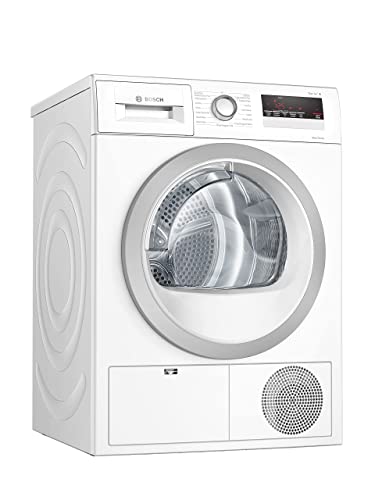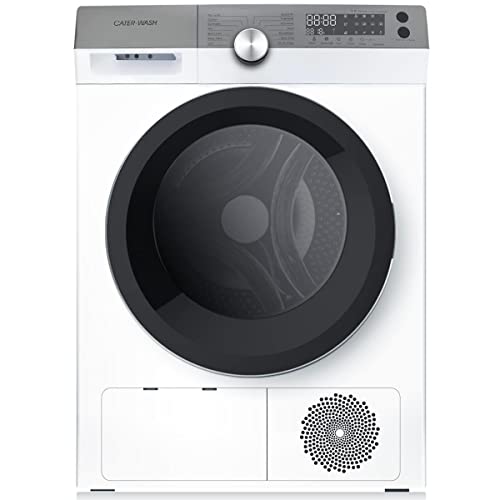5 Killer Quora Answers To Tumble Dryers Heat Pump Vs Condenser
페이지 정보

본문
 Heat Pump Vs Condenser Tumble Dryers
Heat Pump Vs Condenser Tumble DryersTumble dryers come in many different styles. John Lewis sells vented and condenser dryers in-store as well as online. Sales advisors from John Lewis are available to assist you in choosing the appropriate dryer.
Vented models need to be connected to an external vent, whereas condenser units don't, and can be placed anywhere you'd like them to be placed in your home. Condenser models get rid of moisture by transferring hot air into a separate chamber and transform it into water which is stored in a tank that needs to be regularly emptied.
Heat pump dryers are more efficient.
The modern world of laundry has seen a number of innovations including tumble dryers with heat pumps. These dryers are efficient and gentle on fabrics. They are also more flexible than condenser and vented models in terms of placement.
The dryers of a heat pump function by taking in warm air and recycling it into dry clothes. This is done by the combination of an air conditioner and a dryer. This method is extremely Efficient Drying with Samsung WiFi Heat Pump in terms of energy consumption and doesn't require venting. This makes them a great option for those looking to save on their electric bills and be environmentally conscious.
Traditional dryers, on the other hand, utilize fans that blow hot air over the laundry that is tumbling. This hot air is then released outside and replaced with ambient air. A typical dryer uses a lot of electricity to dry your laundry. Over time, this can lead to higher utility bills. Heat pump dryers are much more energy efficient and can reduce the cost of energy by up to 50 percent.
A heat-pump dryer is also more sustainable, since it uses less water than a traditional dryer. It is more eco-friendly because it doesn't need a separate tank to store its coolant as a gas dryer. Instead it recycles warm air that is removed from the dryer's drum.
Another advantage of a heat-pump dryer is that it doesn't need a duct, which can be a major headache for people who live in small homes or apartments without a laundry room. This eliminates the need to clean the duct at least every six months, like it is with traditional dryers. This will save time and effort for busy people.
Although a dryer with a heat pump may be more expensive than a conventional vented dryer at first, it can help families save money in the long term because of its low operating costs. Peter McPhee, a senior program director at the Massachusetts Clean Energy Center, estimates that his family's heat pump dryer is saving hundreds of dollars every year.
When selecting a dryer with a heat pump, look for one that offers sensors that detect when your laundry is finished and stops the cycle. This will save you money on electricity and also prevent over-drying which can damage fabrics. It is also recommended to look for a dryer that has an lint filter and a condenser coil. These parts must be cleaned regularly to maintain optimal performance.
They are also quieter
The newer tumble dryers, particularly those with heat pump technology are quieter. They can do this because they circulate the warm air inside the laundry instead of blowing it outside. This makes them better for use in open plan spaces and smaller homes. They are also more gentle on clothing. However, they may take a little longer to dry due the lower temperatures.
The main drawback of dryers that use heat pumps is that they are more expensive to purchase than vented tumble dryers. This can be a deterrent for some households who are budget-conscious. They are more energy-efficient and environmentally friendly. They are also gentler on your clothes, meaning they are less likely to scratch or shrink them. They are also easier to use and come with more programmes than traditional vented dryers.
Unlike vented dryers, which require external venting to eliminate damp air the heat pump models don't require this, making them an ideal choice for homes with a limited space or that can't make structural modifications. This can be particularly helpful if you're living in an apartment or renting your home. They're also a good option for those who are sensitive and want to stay clear of mildew or mold.
They function in a similar manner like heat pumps, extracting vapor tumble dryers heat pump out of your clothes and converting it into water. The vapor is recycled to the dryer, and because it consumes less energy than traditional tumble dryers, it's a green alternative. Heat pump dryers also operate quite quietly, meaning you can unwind while your laundry is drying.
Although there are a few drawbacks for tumble dryers with heat pumps like their higher upfront costs and slower drying process however, they are worth the extra expense in the long run due to their superior energy efficiency and gentle maintenance. These attributes make them a great choice for households with busy schedules and there's various models to suit any budget. However, it's important to think about your patterns of use and the total cost of the ownership (purchase price and running costs) before deciding on which kind of tumble dryer is best for you.
They are more flexible
You should consider a dryer with a heat pump if you want dryer that is energy-efficient and gentler on your laundry. These dryers dry your laundry using recycled hot air, which can save you money over time. In addition to being more environmentally friendly, these machines can be used in well-ventilated areas without the need for vents outside. They also require less space to operate than vented dryers. They may take longer to dry your laundry than a vented model.
The traditional vented dryers heat the drum using gas, and then expel the moisture. They are less efficient than heat pump and condenser models but still use much less power than other types of dryers. They are also a great option for homes with only a small amount of energy needs.
Condenser dryers and heat pumps make use of a heat exchanger to convert warm air into water which reduces their energy consumption by around half. They are quieter than tumble dryer with heat pump dryers of other brands and some models include dampening mechanisms to lower the sound levels. They can be stacked with a washing machine to save space, and many models are suitable for wall mounting.
A tumble dryer with a heat pump uses a combination of solar and conventional energy to perform its laundry cycle. It can reduce your energy bills by as much as 50% when compared to a vented tumble dryer. It can also be paired with an electric heater to improve efficiency. But, it's important to note that heating systems can be costly if you need them for a large amount of laundry.
They can be more expensive in the beginning but they're also more affordable in running costs. They also provide more flexibility. They are also easy to operate and offer various programs, including anti-crease and ironing functions. They can be used in a variety of rooms and are often suggested for people who live in apartments. These dryers are also suitable for people who live in areas that has poor air quality or those who wish to decrease their carbon footprint. The ideal tumble dryer for your home will be determined by your laundry habits, the amount of space, and budget.
They are more expensive
Dry your clothes using a combination cooling and heating technologies. They are more efficient in energy use than vented tumble dryers, and can help you save money on your electricity costs. They are also more quiet and gentle on your clothes. They cost more up front than vented models. The cost is offset by the energy savings in the long run.
The dryers that use a heat pump utilize a heat exchange system to reuse the heated air. This can reduce energy consumption by up to 15%. They can also save time and money by detecting the amount of moisture present in your laundry and then adjusting the cycle accordingly. They also have a lower environmental impact than vented tumble dryers heat pump dryers.
The Beko DPHR8PB561W Heat Pump Tumble Dryer, Tumble Dryers Heat Pump 8Kg is an excellent example of a quiet and highly efficient heat pump dryer. It is perfect for small and medium-sized homes. It is A+++ Rated and comes with a large capacity that can take care of your daily washing requirements. It is simple to use since it comes with a variety of programs that are automated. It detects the degree of wetness of your laundry and then determines the optimal drying time for each load. The dryer will let you know when it's finished, so you don't have to fret about drying your clothes too long.
Vented and condenser tumble dryers expel moist air into the laundry room or outdoors through an extraction hose. However, heat pump tumble dryers do not require an extraction hose since they reuse the heat from the air. They recirculate warm moist air, and then collect or funnel it into the drain.
 It takes longer for them to dry laundry than vented dryers. However, the longer time is worth it because of their energy efficiency and gentle way drying your laundry. They are more eco-friendly and less expensive to run in the long haul than vented dryers, which are unable to reuse heat and thus consume more energy.
It takes longer for them to dry laundry than vented dryers. However, the longer time is worth it because of their energy efficiency and gentle way drying your laundry. They are more eco-friendly and less expensive to run in the long haul than vented dryers, which are unable to reuse heat and thus consume more energy.- 이전글Upvc Doors Near Me The Process Isn't As Hard As You Think 24.06.03
- 다음글The 10 Most Terrifying Things About Designer Handbags In Sale 24.06.03
댓글목록
등록된 댓글이 없습니다.
